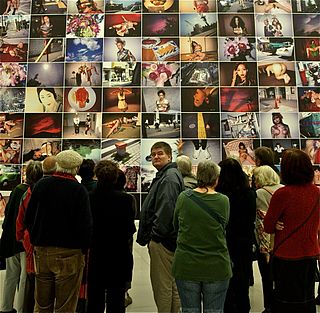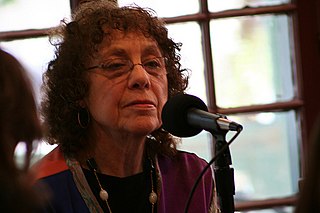A Quote by Nobuyoshi Araki
In the act of love, as in photography, there is a form of life and a kind of slow death.
Related Quotes
In the face of death, especially violent death, things don't make sense anymore. So death is the dissolution of either physical form or psychological form. And when a form dissolves, always something shines through that had been obscured by the form. This is the formless One Life, the formless One Consciousness.
I collect art on a very modest scale. Most of what I have is photography because I just love it and it makes me happy and it looks good in my home. I also have a pretty big collection of art books mainly, again, on photography. A lot of photography monographs, which is great because with photography, the art itself can be reproduced quite well in book form.
For Death must be somewhere in a society; if it is no longer (or less intensely) in religion, it must be elsewhere; perhaps in this image which produces Death while trying to preserve life. Contemporary with the withdrawal of rites, Photography may correspond to the intrusion, in our modern society, of an asymbolic Death, outside of religion, outside of ritual, a kind of abrupt dive into literal Death.
no form of love is wrong, so long as it is love, and you yourself honour what you are doing. Love has an extraordinary variety of forms! And that is all there is in life, it seems to me. But I grant you, if you deny the variety of love you deny love altogether. If you try to specialize love into one set of accepted feelings, you wound the very soul of love. Love must be multi-form, else it is just tyranny, just death
Every act of irreverence for life, every act which neglects life, which is indifferent to and wastes life, is a step towards the love of death. This choice man must make at every minute. Never were the consequences of the wrong choice as total and as irreversible as they are today. Never was the warning of the Bible so urgent: 'I have put before you life and death, blessing and curse. Choose life, that you and your children may live.'
It was the essence of life to disbelieve in death for one's self, to act as if life would continue forever. And life had to act also as if little issues were big ones. To take a realistic attitude toward life and death meant that one lapsed into unreality. Into insanity. It was ironic that the only way to keep one's sanity was to ignore that one was in an insane world or to act as if the world were sane.
I think that the exactitude of the photograph has a sort of compelling nature based in its power to duplicate life. But to me the real power of photography is based in death: the fact that somehow it can enliven that which is not there in a kind of stultifying frightened way, because it seems to me that part of one's life is made up of a constant confrontation with one's own death.
If the denial of death is self-hatred, as it is to deny our freedom and live in fear of death (which is to say, to live in a form of bondage), then the acceptance and affirmation of death is indeed a form of self-love. But I'd want to make a distinction between a form of self-love which is essential to what it means to be human, and a narcissism of self-regard, like Rousseau's distinction between amour de soi and amour propre, self-love and pride.
Through death you find yourself, because you no longer identify with form. You realize you are not the form with which you had identified neither the physical nor the psychological form of "me". That form goes. It dissolves and who you are beyond form emerges through the opening where that form was. One could almost say that every form of life obscures God.
There is no single best kind of death. A good death is one that is "appropriate" for that person. It is a death in which the hand of the way of dying slips easily into the glove of the act itself. It is in character, ego-syntonic. It, the death, fits the person. It is a death that one might choose if it were realistically possible for one to choose one's own death.


































